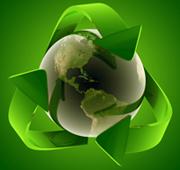 These days, we cannot live without our electronic gadgets. We check our sleek cell phones for new messages, meetings, photos and songs. These must-have tech gadgets keep us informed in both in our personal and professional lives.
These days, we cannot live without our electronic gadgets. We check our sleek cell phones for new messages, meetings, photos and songs. These must-have tech gadgets keep us informed in both in our personal and professional lives.
While our lives have been simplified by lightning speed technology, we barely have time to think about how to get rid our outdated models before a new one is released in the market. Herein lies the problem, new electronics are designed with a short shelf life, slimmer and faster models replace our outdated ones. This leaves once favored radios, TVs, computers, cell phones, printers and faxes cluttering our lives. As a result, old electronics are often tossed in the local landfill since we don’t know how else to get rid of them.
What we do with these electronic relics matters. Electronic waste (e-waste) makes up 70 percent of the total toxic waste currently found in landfills. Electronics often contain toxic materials like lead and mercury, which can contaminate both soil and drinking water. Instead of adding toxic e-waste to our landfills, why not adopt this green mantra: recycle, donate and reuse outdated electronics.
Adopting this mantra is critical for our global health. It is estimated that e-waste is growing three times faster than other municipal waste. So fast that, according to the Web site Earth911.org, our global volume of e-waste is expected to reach 40 million metric tons. They also state that in 2006, the U.S. alone generated an estimated 1.5 billion pounds of all kinds of e-waste, including an estimated 44 million computers and televisions.
Computer and televisions are singled out as being the most harmful of the e-culprits. CRT-based (cathode ray tubes) computer and television monitors contain an average four to eight pounds of the highly toxic heavy metal lead. With the recent news release of the FCC’s requirement that all televisions must run on a digital signal by February 19, 2009, the landfills are likely to bear an even greater lead burden.
E-waste is really a misnomer, since these electronics can be turned into e-resources when properly reclaimed. Reusable e-resource materials include glass, copper, aluminum, plastic, which have value when extracted from their original form.
In order to address the growing e-waste problem, state and local governments, electronic manufacturers and nonprofit organizations have implemented comprehensive recycling programs. Five states, including California, Maine, Maryland, Texas, and Washington, have taken their e-waste programs one step further by authorizing laws to make electronic collection mandatory.
Since each state has particular recycling requirements and guidelines, it is important to take the initiative to find out more about available e-waste programs in your local area. The Web site Earth911.org offers a comprehensive guide through their recycling locator database. All you have to do is type in your Zip code and a keyword, such as “computer,” and a list of recycling centers is at your fingertips.
Select electronics manufacturers and retailers provide e-waste recycling programs. Some manufacturers offer to accept and process their name brand at no cost, while some will accept other brands for a small fee. For instance, when you purchase a new Apple computer from the Apple online or retail store, they will recycle your old model for free.
They will also recycle old Apples for a nominal fee, if you’re not in the market to buy a new one. Staples, the world’s largest office products company, will recycle e-waste in accordance to environmental law for a fee of $10 per large item. (Go to their Web site, www.staples.com for more details on their program requirements.
Start practicing your e-waste mantra now and take action to protect our soil and groundwater from toxic waste.
E-waste Recycling Information
Earth911.org: lists local information on recycling and consumer responsibility for sustainable living.
Manufacturer Programs
Apple
Dell
Hewlett-Packard
Acer
Toshiba Trade-In and Recycling Program
Gateway
Lenovo/IBM
Sony
Panasonic
Epson
Retailer Programs
Circuit City
Best Buy
Staples
EPA Plug-In Partners
Donation
Charity America: matches donors with charities across the U.S.
Computers for Schools: reconditions donated computer equipment for education use and places them in schools
EPA: gives options for donating or recycling e-waste
Goodwill Industries: lists locations that accept newer computers and equipment
National Christina Foundation: accepts donated computers to give to people with disabilities and others at risk
Share Technology: connects computer donors and non-profit donation seekers throughout the country
Cell Phone Recycling/Donation/Paid Programs
CollectiveGood: donate to your cell phone to your charity of choice and receive tax credit
Greenphone: get paid for recycling your cell phone
Motorola
Nokia
Call to Recycle
National Coalition Against Domestic Violence
Call to Protect
Verizon Wireless
AT&T Wireless
T-Mobile Wireless
Sprint Wireless
